Life
Sign up for our newsletter
We summarize the week's scientific breakthroughs every Thursday.
-
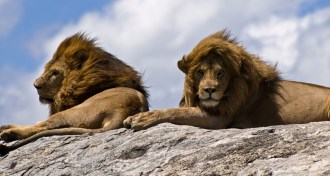 Life
LifeCheetahs, but not wild dogs, manage to live with lions
One conservation tenet says that cheetahs can’t survive when lions are around, but it’s wild dogs that disappeared in one lion-dense area of the Serengeti.
-
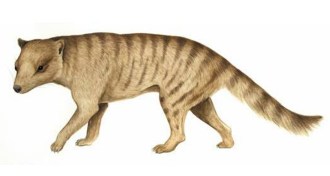 Animals
AnimalsLittle thylacine had a big bite
A reconstruction of the skull of a thylacine, an extinct, fox-sized Australian marsupial, reveals that the animal could have eaten prey much larger than itself.
-
 Ecosystems
EcosystemsWar’s ecological effects laid bare in ‘A Window on Eternity’
In "A Window on Eternity," entomologist E.O. Wilson chronicles both the shifting ecology of Gorongosa National Park after the war and how researchers are trying to repair the damage.
-
 Earth
EarthSurge seen in number of U.S. wildfires
The number and size of wildfires in the western United States has steadily risen over the last three decades.
-

-
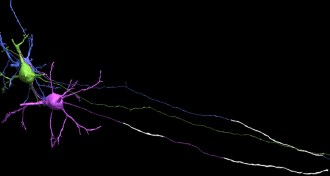 Life
LifeInsulating sheath on nerve cells isn’t an even coat
Myelin doesn't evenly coat axons, a finding that runs counter to what scientists suspected.
-
 Genetics
GeneticsCloning produces stem cells from adult skin
Human embryonic stem cells made using adult cells could enable medical advances such as replacement organs.
-
 Genetics
GeneticsNew tools reveal new truths about fungi, flies, antibiotics
In the newsroom, any story about a new scientific method faces an uphill battle. In this issue are a number of stories that feature how science is done.
By Eva Emerson -
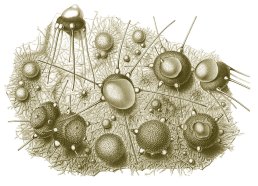 Life
LifeThe name of the fungus
A rebellion has broken out against the traditional way of naming species in the peculiar, shape-shifting world of fungi.
By Susan Milius -
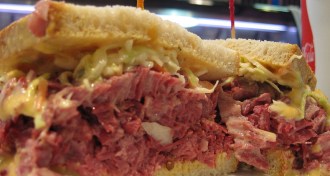 Health & Medicine
Health & MedicineGene variant, processed meat linked to boost in cancer risk
In people with a specific variation of a gene on chromosome 10, eating processed meat is associated with an increased risk of developing colon cancer.
-
 Neuroscience
NeurosciencePoor slumber is bad for young flies’ brains
A child's sleep deprivation could alter brain development and adult behavior, a study of fruit flies suggests.
-
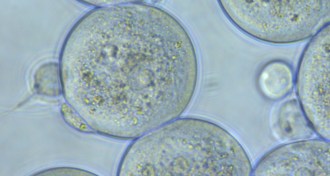 Life
LifeProtein that gets sperm into egg identified
The protein Folr4 on a reproductive egg plays this crucial role in the fusion of the sperm and egg, research shows.